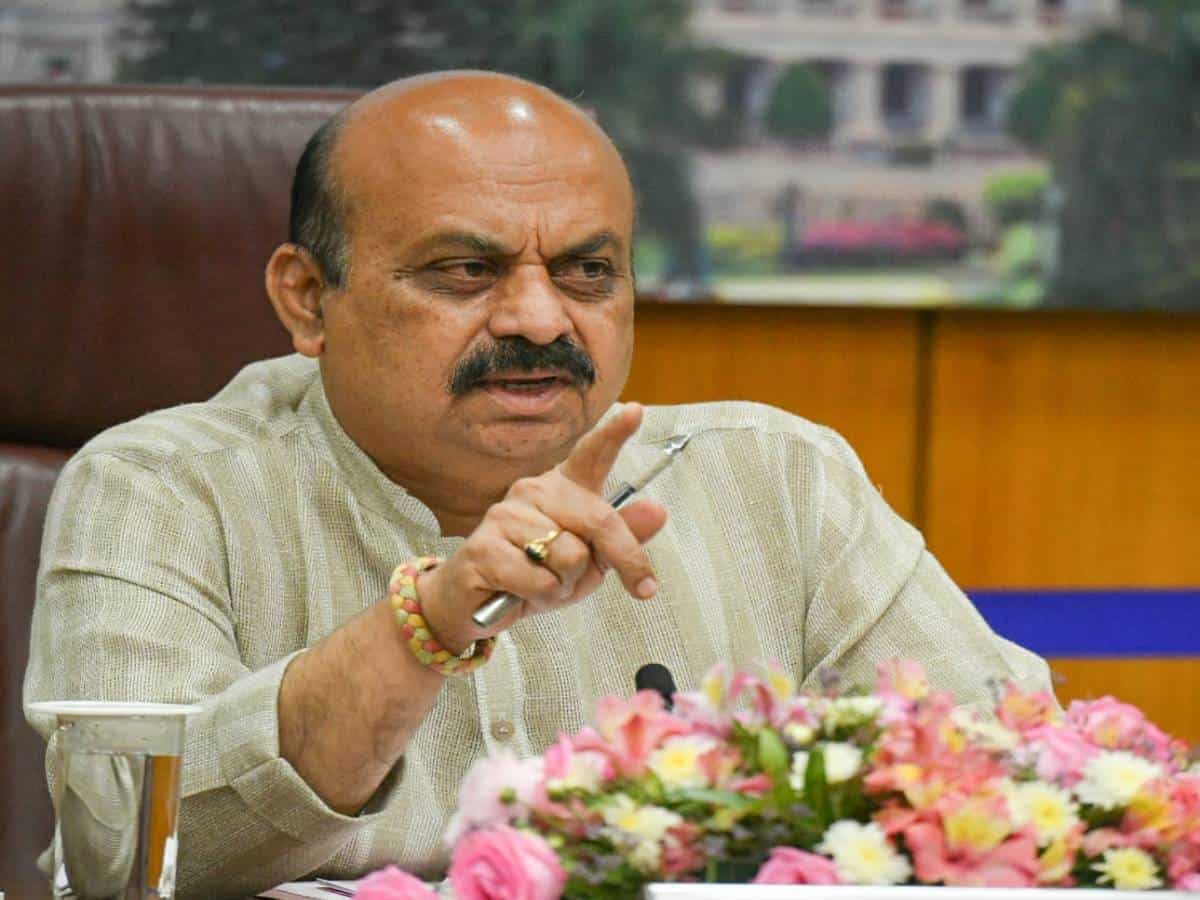
Prominent citizens and intellectuals have written to Karnataka Chief Minister B S Bommai to clamp down on the rising incidents of hate and communal politics in the state.
In a letter, the signatories mentioned that denial of rights to Muslim girl students and the ban on Muslim shopkeepers indicates worsening situation in the state.
The letter remarked that there is a blasphemous atmosphere in the state.
Contents of the letter:
“It is shameless work to deliberately instil religious hatred in this land where the epistle is sung as a garden of racial peace. Fascism and communalism are depriving the right of the poor girls of the Muslim community to use the headscarf as a weapon. No schools have been held for the past two years. Children who grow up with uniforms supplied two years ago are no longer able to wear them. At the very least, we do not understand what is required by the government to mandate uniforms on the eve of the test, which is not the case,” said the letter.
The letter further argued that the sudden proposal to incorporate the Bhagavad-Gita into the text has come to the fore.
“We feel that children need to read the Constitution. We feel that it is the responsibility of the government to curb this.”
Discussing the ban on Muslim traders, the intellectuals argued that, “Festivals are held all over the state and are all economic and cultural dimensions that do not make any Muslim relatives wealthy. A few years ago, the president of the Jatra Committee of Thottadarya Monastery was given to the Muslim bandh. Regardless of the opposition the fair was held decisively.”
“Muslim traders have been boycotted at festivals in the pulse of Samasar’s heritage. Banners are being warned at the fair. The impact on the livelihood of any Samudan people is to jeopardize their livelihoods. It is impossible to predict the consequences. Undermining this ground of reconciliation is not bad for those in power,” read lines from the letter.
The letter concluded with a list of demands, some of which are as follows:
Our demands:
1. At the end of the academic year, Muslim girls who have been affected by the unnecessary headscarf issue should be allowed to wear a headscarf as part of their uniform without denying them the right to their constitutional education. It is a question of the future of children and the government should be given the necessary instruction. On the eve of the SSLC exam, the Karnataka Secondary Education Examination Board has imposed a code of dress. The unscientific circular issued by the outbreak must be withdrawn.
2. The festivals on the state’s fairs should continue to allow for harmonious heritage activities and trade-offs that have taken place in the past. Those who maliciously undermine it should be prosecuted arbitrarily. Necessary legal action should be taken.
3. Strict legal action should be taken against those who are disturbed by religion and fanaticism. The proposal to make the Bhagavad Gita a text must be dropped.
4. The Government should take action to ensure that the harmony of the Kannada land is not damaged.
We request that our demands for rights be treated as part of their constitutional duty.
Muslims barred for installing stalls in temple festivals
Hindutva goons in Kodagu district on March 25 forced Muslim vendors to shut down fruit and juice stalls set up in the premises of the venue where a state-level agricultural programme was scheduled to take place.
Several saffron scarves clad Bajrang Dal goons in Shaniwarpet forced Muslim traders to empty the premises of the venue where a state-level programme related to agriculture and domestic cows was scheduled to take place in Manehalli village.
Professor SG Siddaramaiah, K.Nela, Dr Rahmat Tarikere, T Surendra Rao, were some of the signatories to the letter.
Karnataka has been witnessing a number of communal episodes beginning in January when the hijab row erupted as saffron-clad Pre-University students protested against the wearing of headscarves by fellow female Muslim students within the premises of their college.



